This article was medically reviewed by Luba Lee, FNP-BC, MS. Luba Lee, FNP-BC is a Board-Certified Family Nurse Practitioner (FNP) and educator in Tennessee with over a decade of clinical experience. Luba has certifications in Pediatric Advanced Life Support (PALS), Emergency Medicine, Advanced Cardiac Life Support (ACLS), Team Building, and Critical Care Nursing. She received her Master of Science in Nursing (MSN) from the University of Tennessee in 2006.
There are 14 references cited in this article, which can be found at the bottom of the page.
wikiHow marks an article as reader-approved once it receives enough positive feedback. This article received 12 testimonials and 88% of readers who voted found it helpful, earning it our reader-approved status.
This article has been viewed 263,612 times.
When you’re sick, you just don’t feel like yourself. You feel depressed and weak, and sometimes you continue to feel sickly even after most of your symptoms have subsided. It can be really hard to get out of bed and get active again, and cleaning up your house can seem daunting. In order to help shake off the misery of being sick, it is important to take care of yourself and your house post-illness so that you can continue to feel better and avoid getting sick again.
Steps
Self Care
-
1Take plenty of time to rest. One of the quickest ways to end up back in a sickbed is to push yourself to be active too soon. Yes, you probably have a lot to do and might be missing school or work, but letting your body recuperate from an illness is extremely important. Don’t try to do too much until all of your symptoms have subsided. Relaxing and getting lots of sleep should be #1 on your priority list until you feel like you are 100% better.
- Healthy adults need between 7.5 and 9 hours of sleep every night, and someone who is sick will need a great deal more. Make sure you are allowing yourself adequate time to rest, whether this means calling in sick to work or school, canceling plans, and/or going to bed early.[1]
-
2Stay hydrated. Being sick can take a lot out of you; it is always an exhausting experience, both mentally and physically. Help your body bounce back faster by drinking plenty of fluids.[2] Be sure to drink an 8 fl oz (240 mL) glass of water every few hours throughout the day to replace fluids lost during your illness. You should also drink a nutrient-rich drink like bone broth, vegetable broth, or coconut water a few times per day even after you feel better.Advertisement
-
3Eat healthily. Getting back into the swing of eating after a bout of illness can be unappealing at best. However, it is very important to revive your body with much-needed nutrients and sustenance so you can keep getting better. Since you have probably only eaten crackers, dry toast, or broth for the few past days or weeks, start reintroducing some healthy, nutrient-rich foods into your diet again.[3] Some tips:
- Avoid eating any rich, processed, or fatty foods.
- Eat smaller, lighter meals more frequently throughout the day instead of 3 main meals.
- Try eating a green fruit and vegetable smoothie once a day. It will help you to ingest a lot of nutrients that are key to getting you back on your feet.
- Soups, in particular chicken bone broth with vegetables, tom yum, pho, and miso soup, are a great way to reintroduce proteins and vegetables back into your diet.
-
4Ease your muscle aches with gentle heat. Part of feeling better after you’ve been sick is dealing with associated symptoms like soreness and muscle aches. You might not be coughing every 5 minutes anymore, but your back might hurt still from all the hacking. One good way to alleviate any associated soreness once you start feeling better is with heat treatments. For example:[4]
- Relax in a nice long bath. Try adding 1 cup (1.7g) of Epsom salts or a few drops of relaxing, anti-inflammatory essential oils like eucalyptus, peppermint, or lavender to promote additional healing and relaxation.
- Try using a heat pad to help with site-specific pain. For example, if you’re having lower abdominal cramping post-stomach flu, you can heat the pad up and place it on your abdomen for some relief.
- Carefully massage a pain-relieving ointment like Tiger Balm or Icy Hot wherever you feel sore. For example, apply a dab to your temples for any associated headaches. Just be sure to wash your hands afterward, as these rubs are very potent and whatever skin it touches will heat up!
-
5Exercise with moderation. Getting up and moving around after being sick will get the blood flowing and help flush toxins out. But wait until you are completely fever-free to begin exercising.[5] If you haven’t had a fever, avoid intense workouts and give yourself 2 to 3 weeks before you start doing any heavy exercising. Get back into working out slowly, and start with short, light workouts, such as walking, gentle stretches, and restorative or slow yoga. Wait at least a week after being sick before moving to more moderate exercises, like jogging.
- You could also ease back into exercising with a hot yoga class, which can support your immune system and help clear out any remaining congestion.
- Just remember to stay hydrated, listen to your body, and take it slow! Get plenty of rest after doing any kind of exercise.
-
6Ask your doctor about using supplements to boost your immune system. Some kinds of vitamin and mineral supplements may strengthen your immune system and help you feel better, faster. Before you try any new vitamin, talk to your doctor. Let them know if you’re taking any other medications or supplements, since this can affect which supplements you can take safely. Some supplements that might help include:[6]
- Vitamin D
- Vitamin C
- Zinc
- Potassium
- Polyphenols, which you can get naturally from green tea and most fruits and vegetables
- Probiotics, which you can find in foods like yogurt and kefir
-
7Try stress-relieving activities to help yourself feel better. Getting sick can be stressful. Unfortunately, stress can also wear your body down and make it harder to bounce back! If you’re feeling stressed, set aside at least a few minutes each day to do things that help you relax.[7] For example, you could:
- Do deep breathing exercises
- Meditate
- Do light stretches or yoga
- Listen to peaceful music
- Chat with a friend or loved one
- Work on a hobby or creative project
- Relax outdoors
- Get a massage, or massage yourself[8]
-
8Moisturize your skin. Being sick can take a real toll on your appearance. All of that sneezing, coughing, and wiping can leave you with raw, red skin. Once you’ve started taking care of the inside of your body, turn your attention to your neglected skin.[9] Purchase a moisturizer that has lanolin in it and dab it onto areas like your nose for instant relief from painful, chapped skin. Consider also purchasing a lip balm that contains ingredients like coconut oil or argan oil, which are excellent for chapped lips.
- Sesame and almond oil are also great for moisturizing chapped skin. Just choose products that are free of preservatives and other additives.
Home Hygiene
-
1Strip and wash your bed sheets. When you’re sick, you spend most of your time in bed, so cleaning your sheets should be the first priority. You sweat a lot more when you’re sick and your sheets are covered in unhealthy germs, so killing the bacteria on your bed is very important. Strip your entire bed, including pillowcases, and wash them in hot water with color-safe bleach. Treat any stains with a stain remover before washing. Let your mattress breathe for a few hours before putting any new sheets on.
- While you’re sick, wash your sheets and pillowcases in hot water every few days to kill germs and viruses, especially if you share a bed with someone else.[10]
-
2Deep clean your bathroom. Regardless of the type of illness you had, you probably spent a lot of time dealing with the symptoms of your bug in the bathroom. Whether you were just there to grab more tissues or slept in there for 2 nights vomiting, giving your bathroom a deep clean is another top priority after being sick.[11] Here are some tips for sanitizing your bathroom:
- Wash any bath towels, hand towels, rugs, robes, or other fabrics in hot water with color-safe bleach.
- Disinfect all surfaces, focusing mainly on the countertops and the toilet. You can use a store-bought product with bleach, or you can make your own disinfectant with 1 part water to 1 part rubbing alcohol or full-strength vinegar.
- Empty the trash can, and then disinfect the trash bin.
- Replace your toothbrush or soak your toothbrush head in hydrogen peroxide for 30 minutes to kill any bacteria.
- If you used a sponge to wipe everything down, throw it out when you’re done. If you use a cloth wipe, wash it with the towels when you’re finished.
- Add a few drops of eucalyptus oil to your cleaning solution when you mop the floor. The scent will soothe your airways, and the oil may help kill lingering germs and viruses.[12]
-
3Disinfect your kitchen. You might not have used your kitchen much while you were sick, but even just making a pot of tea can leave a trail of germs that can spread your sickness to other people. Disinfect your kitchen with disinfectant wipes, a product with bleach, or a homemade sanitizer with 1 part water to 1 part rubbing alcohol or full-strength vinegar. Key places to wipe down in your kitchen include:[13]
- Countertops
- Refrigerator handle
- Faucet handles
- Pantry, cabinet, and drawer handles
- Any dishware used
-
4Sanitize any other points of contact. It’s hard to remember everything you touched in your house while you were sick, but it’s important to try to sanitize anything you may have had contact with. This will help you stay healthy and reduce the likelihood of you getting anyone else sick. Just be sure to use disinfecting products that are safe for use on a variety of surfaces, such as electronics. In addition to the areas you have already cleaned at this point, the most common points of contact in a house include:[14]
- Thermometers
- Bathroom cabinets and drawer handles
- Doorknobs
- Light switches, including the light switch plate
- Electronics like laptops, cell phones, landline phones, TV remotes, and the computer keyboard and mouse
-
5Wash all of your sick clothing. Now that your bed, bathroom, kitchen, and points of contact are clean, you have to remove the last location of your sick germs: the clothing you wore. Take all of the pajamas, sweaters, and comfy clothes you recuperated in over the past days or weeks and do one last load of laundry using hot water and color-safe bleach. Then, dry the clothes on a high-heat setting.[15] This will ensure that you have killed all the viruses and bacteria you possibly can and will have a clean, healthy slate.
- If you share a home with someone else, wash your clothes separately from theirs to prevent them from getting sick. Run a wash cycle with bleach after you’ve cleaned your clothes to disinfect the washing machine.
-
6Air out the house. After you’ve been sick and cooped up in your house with the windows closed and the blinds drawn, it’s a great idea to air out your house. Open any windows and let a cross breeze move some fresh air in and around your house for a little bit. Replacing the stale, sick air in your home with fresh air will get rid of any airborne particles and it will leave you feeling refreshed and energized.[16] If it’s really cold outside, only do this for a minute or 2; otherwise, keep the windows open for as long as you like!
Expert Q&A
-
QuestionHow do you get yourself back to normal once you've been ill?
 Chris M. Matsko, MDDr. Chris M. Matsko is a retired physician based in Pittsburgh, Pennsylvania. With over 25 years of medical research experience, Dr. Matsko was awarded the Pittsburgh Cornell University Leadership Award for Excellence. He holds a BS in Nutritional Science from Cornell University and an MD from the Temple University School of Medicine in 2007. Dr. Matsko earned a Research Writing Certification from the American Medical Writers Association (AMWA) in 2016 and a Medical Writing & Editing Certification from the University of Chicago in 2017.
Chris M. Matsko, MDDr. Chris M. Matsko is a retired physician based in Pittsburgh, Pennsylvania. With over 25 years of medical research experience, Dr. Matsko was awarded the Pittsburgh Cornell University Leadership Award for Excellence. He holds a BS in Nutritional Science from Cornell University and an MD from the Temple University School of Medicine in 2007. Dr. Matsko earned a Research Writing Certification from the American Medical Writers Association (AMWA) in 2016 and a Medical Writing & Editing Certification from the University of Chicago in 2017.
Family Medicine Physician Try and stay hydrated, do not eat heavy meals, and limit the amount of work and exercise that you do. Avoid exercising intensely for one to two weeks after you have been sick.
Try and stay hydrated, do not eat heavy meals, and limit the amount of work and exercise that you do. Avoid exercising intensely for one to two weeks after you have been sick. -
QuestionI have been sick many times today and I am very thirsty, but whenever I drink I just throw up the fluids. What should I do?
 Chris M. Matsko, MDDr. Chris M. Matsko is a retired physician based in Pittsburgh, Pennsylvania. With over 25 years of medical research experience, Dr. Matsko was awarded the Pittsburgh Cornell University Leadership Award for Excellence. He holds a BS in Nutritional Science from Cornell University and an MD from the Temple University School of Medicine in 2007. Dr. Matsko earned a Research Writing Certification from the American Medical Writers Association (AMWA) in 2016 and a Medical Writing & Editing Certification from the University of Chicago in 2017.
Chris M. Matsko, MDDr. Chris M. Matsko is a retired physician based in Pittsburgh, Pennsylvania. With over 25 years of medical research experience, Dr. Matsko was awarded the Pittsburgh Cornell University Leadership Award for Excellence. He holds a BS in Nutritional Science from Cornell University and an MD from the Temple University School of Medicine in 2007. Dr. Matsko earned a Research Writing Certification from the American Medical Writers Association (AMWA) in 2016 and a Medical Writing & Editing Certification from the University of Chicago in 2017.
Family Medicine Physician In that case, you need to see a doctor and go the ER to receive IV fluid resuscitation. If you are not keeping down liquids that is an indication for admission to the hospital.
In that case, you need to see a doctor and go the ER to receive IV fluid resuscitation. If you are not keeping down liquids that is an indication for admission to the hospital. -
QuestionI've had pneumonia, and I've been diagnosed with dry bronchiectasis. I feel ill in the mornings. The doctor says it's normal, but I've been like this now for 11 months. I tend to feel better as the day goes on. What can I do?
 Luba Lee, FNP-BC, MSLuba Lee, FNP-BC is a Board-Certified Family Nurse Practitioner (FNP) and educator in Tennessee with over a decade of clinical experience. Luba has certifications in Pediatric Advanced Life Support (PALS), Emergency Medicine, Advanced Cardiac Life Support (ACLS), Team Building, and Critical Care Nursing. She received her Master of Science in Nursing (MSN) from the University of Tennessee in 2006.
Luba Lee, FNP-BC, MSLuba Lee, FNP-BC is a Board-Certified Family Nurse Practitioner (FNP) and educator in Tennessee with over a decade of clinical experience. Luba has certifications in Pediatric Advanced Life Support (PALS), Emergency Medicine, Advanced Cardiac Life Support (ACLS), Team Building, and Critical Care Nursing. She received her Master of Science in Nursing (MSN) from the University of Tennessee in 2006.
Board-Certified Family Nurse Practitioner Recovery from pneumonia can be long and difficult. I would recommend trying an elimination diet for 3 weeks to help your body get rid of toxins and possible reactions to foods you are eating. I would evaluate the state of your gastrointestinal health to make sure you don’t have small bacterial overgrowth in your small intestine as well as increased gut permeability that goes hand in hand with post-antibiotic use. I would also utilize supplements--vitamin D, C, zinc, probiotics, and glutathione. In addition, I would recommend to make sure you sleep well and manage your stress with moderate exercises, breathing techniques, meditation, and yoga. I would also definitely consult a functional medicine physician or a nurse practitioner.
Recovery from pneumonia can be long and difficult. I would recommend trying an elimination diet for 3 weeks to help your body get rid of toxins and possible reactions to foods you are eating. I would evaluate the state of your gastrointestinal health to make sure you don’t have small bacterial overgrowth in your small intestine as well as increased gut permeability that goes hand in hand with post-antibiotic use. I would also utilize supplements--vitamin D, C, zinc, probiotics, and glutathione. In addition, I would recommend to make sure you sleep well and manage your stress with moderate exercises, breathing techniques, meditation, and yoga. I would also definitely consult a functional medicine physician or a nurse practitioner.
References
- ↑ https://info.achs.edu/blog/how-to-recover-from-illness-faster
- ↑ https://www.geisinger.org/health-and-wellness/wellness-articles/2017/12/07/21/34/how-to-bounce-back-after-a-bug
- ↑ https://www.geisinger.org/health-and-wellness/wellness-articles/2017/12/07/21/34/how-to-bounce-back-after-a-bug
- ↑ https://www.txortho.com/easing-muscle-joint-pain-flu/
- ↑ https://www.health.harvard.edu/staying-healthy/how-long-should-i-wait-after-the-flu-before-resuming-exercise
- ↑ https://www.arthritis.org/health-wellness/treatment/complementary-therapies/supplements-and-vitamins/vitamins-to-fight-viruses
- ↑ https://www.health.harvard.edu/mind-and-mood/the-mental-side-of-recovery
- ↑ https://www.bvhealthsystem.org/expert-health-articles/massage-therapy-and-your-immune-system
- ↑ https://www.schweigerderm.com/skin-care-articles/beauty/tips-youre-sick/
- ↑ https://www.washingtonpost.com/lifestyle/home/6-household-tips-for-stopping-the-spread-of-cold-and-flu-germs/2018/01/18/f73469be-fbcb-11e7-8f66-2df0b94bb98a_story.html
- ↑ https://selecthealth.org/blog/2020/03/cleaning-your-house-after-someones-been-sick
- ↑ https://www.ncbi.nlm.nih.gov/pmc/articles/PMC5552930/
- ↑ https://selecthealth.org/blog/2020/03/cleaning-your-house-after-someones-been-sick
- ↑ https://www.geisinger.org/health-and-wellness/wellness-articles/2020/03/18/14/32/deep-cleaning-your-home-after-being-sick
- ↑ https://time.com/4676920/washing-machine-germs/
- ↑ https://www.geisinger.org/health-and-wellness/wellness-articles/2020/03/18/14/32/deep-cleaning-your-home-after-being-sick
- ↑ https://www.geisinger.org/health-and-wellness/wellness-articles/2020/03/26/19/06/sick-day-and-preventative-nutrition-during-covid-19
About This Article
To feel better after you’ve been sick, replace the fluids you lost and stay well hydrated by drinking an 8-ounce glass of water every few hours. Since you need to eat healthy to give your body back much-needed nutrients, try eating soups with protein and vegetables, and avoid rich, fatty foods. If your muscles still ache from your illness, take a nice long bath with Epsom salts or use a heat pad to soothe any soreness in your body. Once you’ve recovered, slowly start exercising in moderation to flush any toxins out of your system. For more tips from our Medical co-author, including how to rid your home of germs from when you were sick, read on!





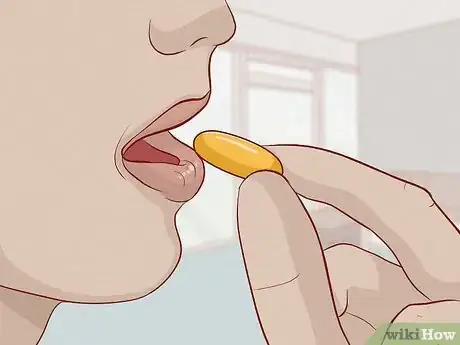

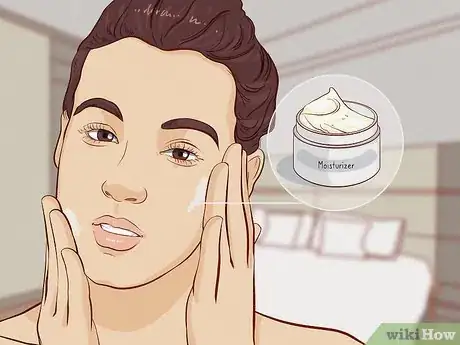

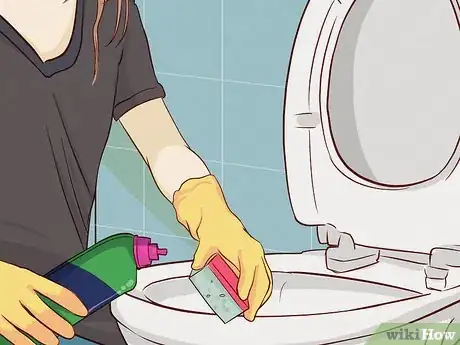


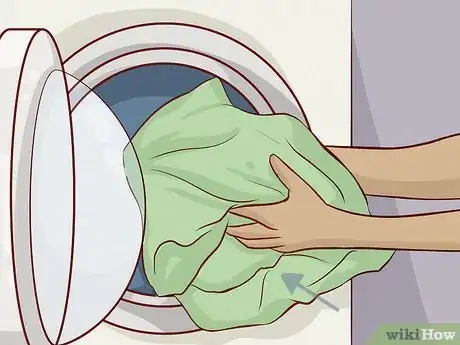
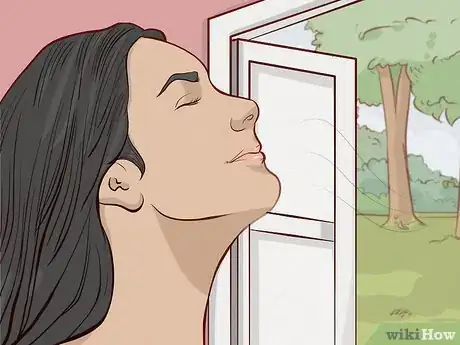

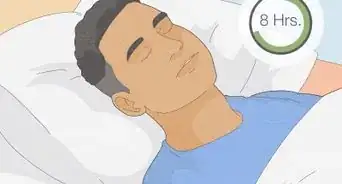




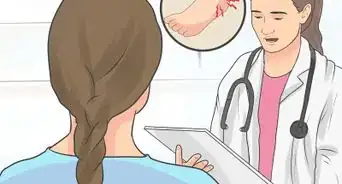
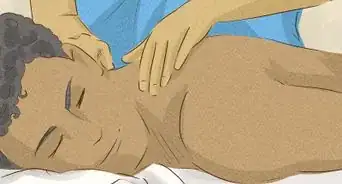

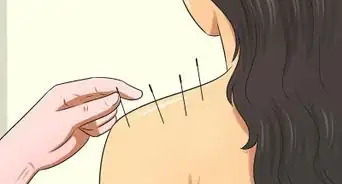

















































Medical Disclaimer
The content of this article is not intended to be a substitute for professional medical advice, examination, diagnosis, or treatment. You should always contact your doctor or other qualified healthcare professional before starting, changing, or stopping any kind of health treatment.
Read More...